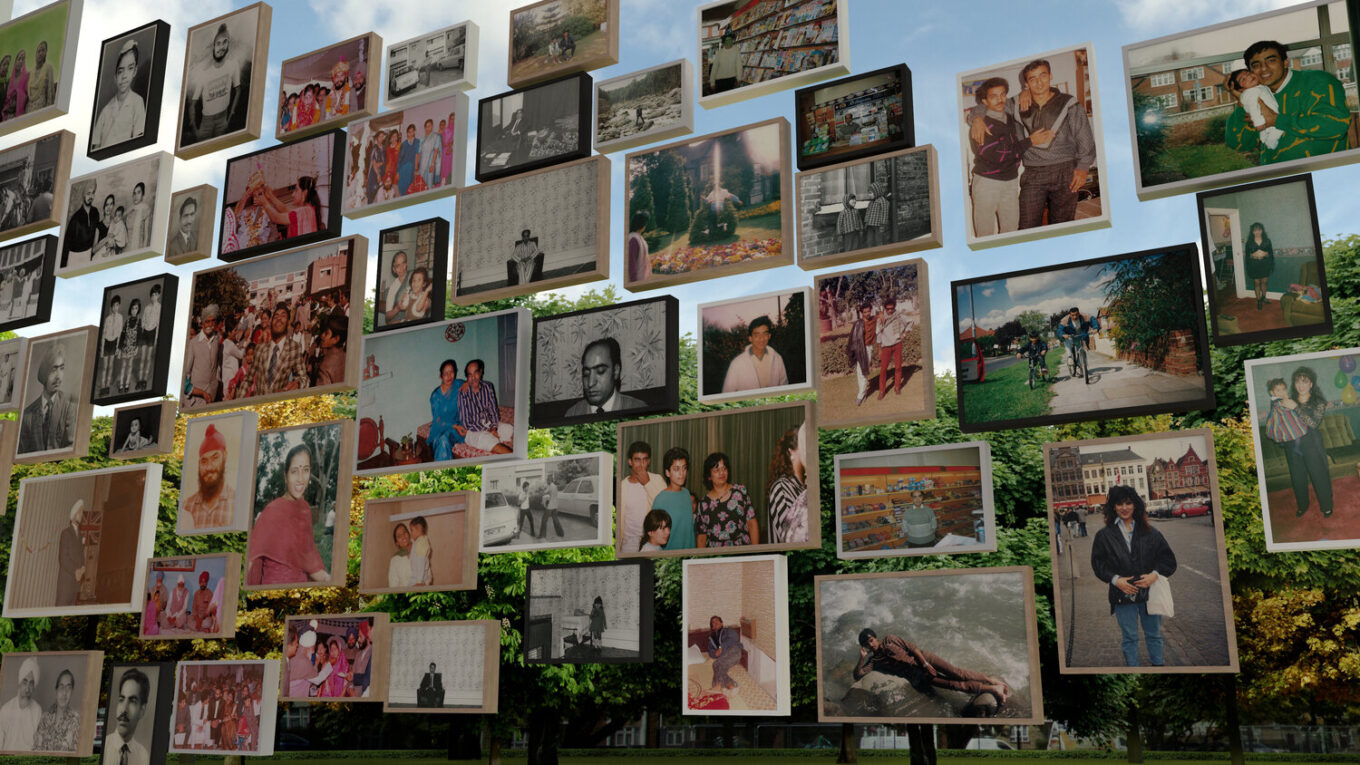VINNY SANDHU revisits Priya Ahluwalia’s Jalebi, a collection of photographs documenting the lives of residents in Southall which reflect on the importance of this area and its representation for London’s Punjabi community.
As we begin the new year, I want to revisit a pivotal exhibition that helped me examine my own identity as a British-Indian-Punjabi woman. During the pandemic and multiple lockdowns, there has been a lot of time for me to introspect on my own position within the complexities and nuances of identity, immigration and culture. Priya Ahluwalia’s Jalebi (2020) not only confronts the questions I had posed for myself, but celebrates London’s Punjabi community. Ahluwalia’s book and virtual exhibition look at Southall, a large suburb of West London, with a fondness, a nostalgia, a matured appreciation that develops as we return back to the spaces we used to visit while we were growing up.
Ahluwalia’s book, Jalebi, consists of both documentary-style and staged fashion photographs shot by Laurence Ellis in Southall. The book also features extracts from an interview Ahluwalia carried out with her grandmother about the Ahluwalia family experience in both India and Britain, and various family photographs to illuminate this narrative. Jalebi was preceded by another publication, Sweet Lassi (2017), which focuses on themes of sustainability and overconsumption. The photographs featured here document the plethora of secondhand clothing that had been dumped in her father’s hometowns: Panipat, India and Lagos, Nigeria. Jalebi takes the viewer on a journey through Ahluwalia’s origins, her experiences of visiting Southall as she grew up, and adds a visual dimension to Britain’s first Punjabi community.
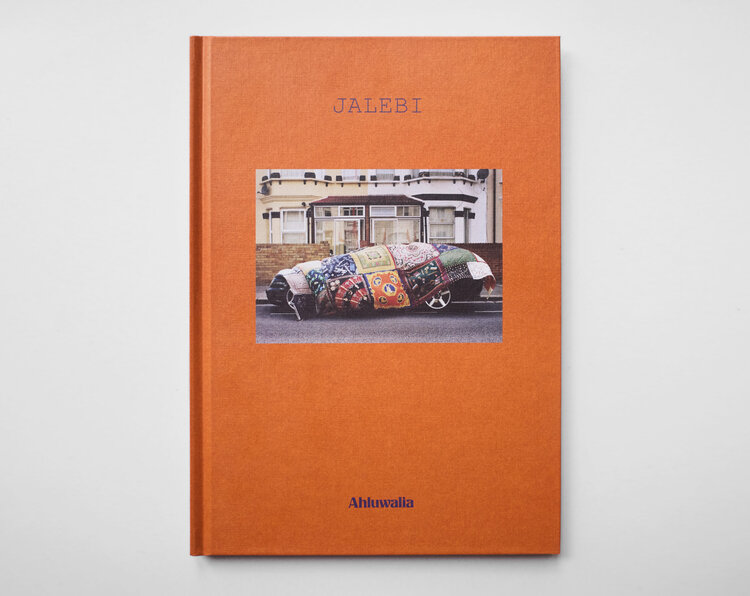
A jalebi is a traditional Punjabi sweet. It is by no means a healthy treat, but it is one many of us will hold close to our hearts. The title of the work reminds me of the times my sister would take a handful of sweets, break her jalebi in half and offer me one of the halves as we waited for our parents to finish their food in the langar hall. Ahluwalia’s virtual exhibition depicted what it means to be ‘a young mixed heritage person living in modern Britain’. The exhibition was part of London’s (Digital) Fashion Week this past summer and featured a virtual 3D-rendering of Southall, created by Chameleon Visual. The exhibition space is vast and open, interweaving both the staged and candid pictures together. As you navigate the space on your own, the lack of chronology leaves you understanding the realities of living in Southall, the memories associated with it, and realising how the perceptions of a place are not necessarily cohesive with the realities of them. There is more to Southall than meets the eye.
Upon entering the virtual exhibition, the beauty and vibrancy that are brought to Southall from immigration, diversity and multiculturalism were instantly palpable. I was no longer simply seeing a town that I once visited with my family to gather food, clothing and other things that are authentically Punjabi (to take back with us to our very white neighbourhood in the suburbs). If you have never visited, or even heard of Southall, you will find all of these documentary photographs to truthfully depict the lived experiences and routines of those who live in the area. These images contrast with the exquisitely choreographed fashion photography, with the residents also photographed exhibiting different fabrics and other facets of material culture that can be found in Southall.
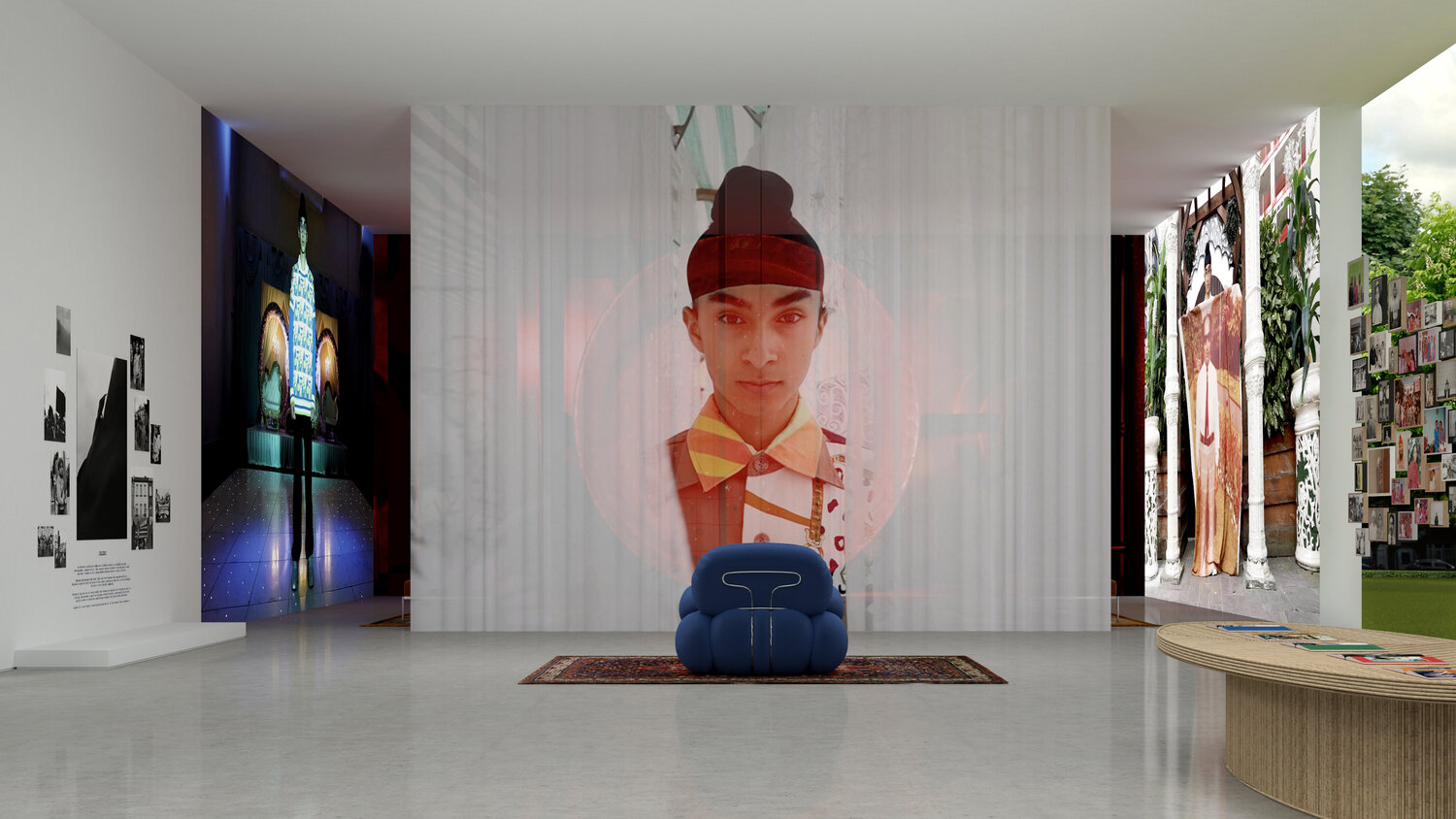
The myriad of pictures transports the viewer deep into West London. Every person in this city has roamed the same streets in central, yet many of our experiences beyond these streets do not overlap when we branch outwards. I have spent the majority of my life on the outskirts of London; I am quite familiar with friends who are not Indian or Asian telling me that they had never been to Southall, or even heard of it. Jalebi offers a renewed sense of pride for the area as it illustrates all the ways in which Southall is unique – almost acting as a cohesive microcosm for the multiculturalism, diversity and differences that thrive in West London.
The collection is a mixture of both staged and candid photographs. The documentary-style photos bring reality into an otherwise condensed conceptualisation of Southall. Jalebi joyfully celebrates the myriad of cultures coming together and creating a vibrant and diverse community. However, it does not shy away from the struggles that are not always shown. For instance, the exhibition features pictures from a protest commemorating Blair Peach who was killed by the police in Southall in 1979. The struggle of this community is also made clear through Ahluwalia’s grandmother’s words that are woven throughout the book; everyone’s adversity is unique, nonetheless, it is still shared by many from all walks of life. While this work celebrates the beauty of race, it’s documentary images are prepared to confront the realities of how people are affected daily by it.
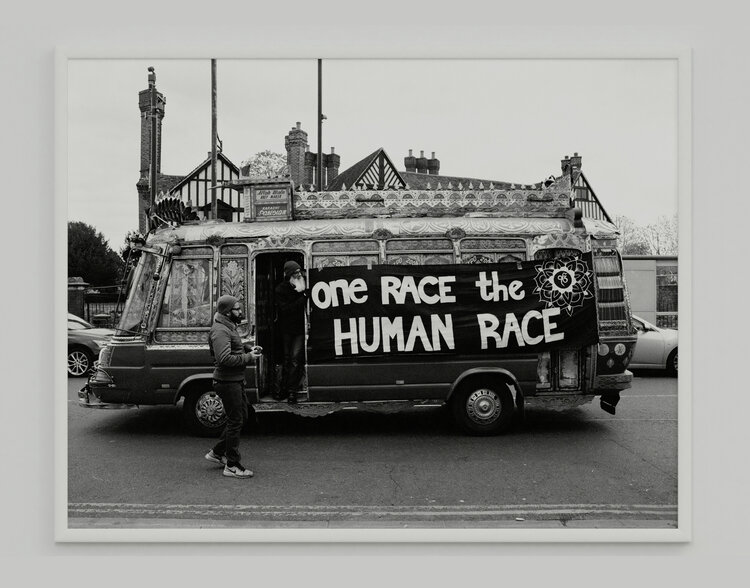
Ahluwalia and Ellis offer a brief reprieve from the current exclusionary discourse surrounding immigration, although it does still operate in the background of the work. We are offered a variety of fantastic products that have stemmed from immigration; however, we are also aware of that heightened hostility towards immigrants with the Windrush Scandal and Brexit, which has overshadowed the multifaceted beauty of immigration. As negotiations come to an end and we navigate our way through the pandemic, Jalebi will still be relevant throughout this new year. We must continue to confront our conceptions of community and what British society looks like today.
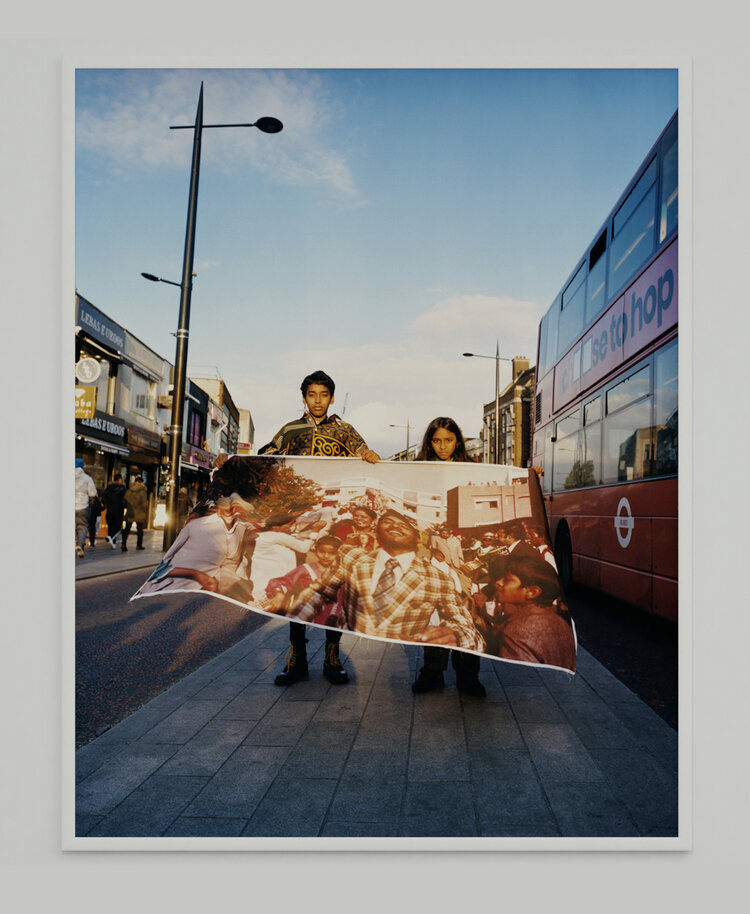
It is definitely worth checking out Jalebi by Priya Ahluwalia. The pictures featured in the gallery will leave those of us who used to visit Southall growing up with a sense of nostalgia, the images invoking memories of the fashions, the smells of incense and woody fragrances, the abundance of different foods. Beyond that, the viewer also gains insight into many of the struggles that come with multiculturalism, diversity and immigration. The process of othering is almost tangible in Jalebi. We are shown how wonderful multicultural communities like Southall are, however, we should not take such communities for granted; rather, we must consider the hardships of those who strived to make this community what it is. Priya Ahluwalia’s Jalebi is a tribute to the Punjabi community in London and the complex vibrancy of Southall.
Featured image: Still from the Jalebi virtual exhibition. Image courtesy of Ahluwalia.


